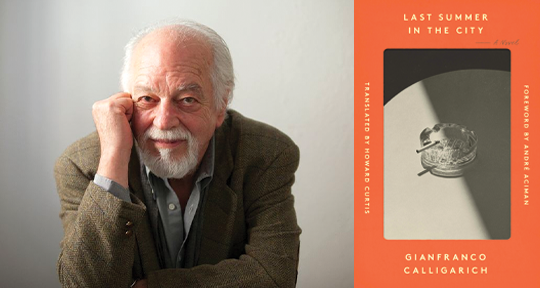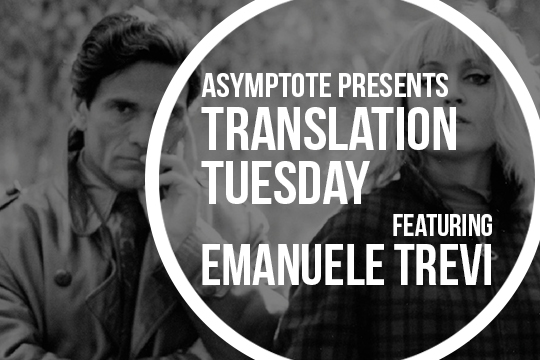Last Summer in the City by Gianfranco Calligarich, translated from the Italian by Howard Curtis, Farrar, Straus and Giroux, 2021
Gianfranco Calligarich’s Last Summer in the City tells the deceptively simple story of a young man drifting through life, searching for romance and success amidst the urban swelter. Newly employed at a medical-literary magazine, narrator Leo Gazzara moves from Milan to Rome—only to be fired a year later due to the publication’s imminent bankruptcy. As he bounces around various jobs and other heartless endeavors, brooding resignation and lethargy permeate Leo’s world; his life, utterly devoid of excitement, becomes simply a series of events to be accepted and passed through in their procession. For the most part, he is a drifter—a flâneur without the poetic possibilities of transcendence. Unambitious and apathetic as he might appear to be, however, the story of Leo is nevertheless one of delicate beauty that imparts the prevalent, existential angst that defined a generation of young men amidst the Italy of the 70s.
In the vein of postwar Italian neorealism, Calligarich spends much of the text on bringing texture and illustration to the humble details of everyday life, and the resulting cinematic effect can likely be referred back to the author’s experience as a screenwriter. Leo’s story counteracts the adulation of glamour and happiness in Fascist propaganda, which holds little to no concern for the personal difficulties of everyday life—boredom, failure, or grief. Instead of telling the simple, customary story of a powerful and desirable man amidst a cosmopolitan enchantment, Last Summer in the City presents a marginalized individual’s quotidian, melancholic tale in a provincial setting. The quiet, understated prose emanates an almost diaristic intimacy into the narrator’s mind, providing an avenue to access his inner vacuum of emptiness, and the terrible simplicity of his apathy.



